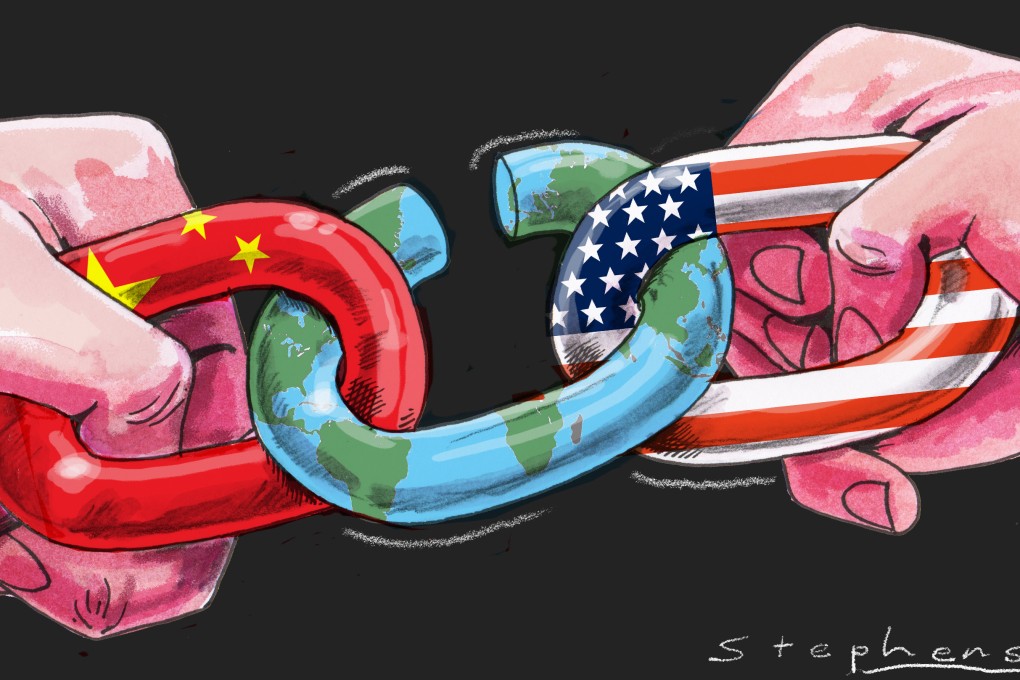Advertisement
Opinion | Decline of globalisation will make our planet less prosperous and more unliveable
- The unfolding trade, tech and cold wars between the US, China and their allies risk eroding the international rules-based architecture
- Without a system for connection and exchange, economies will shrink, cooperation will wither and global crises will mount
Reading Time:3 minutes
Why you can trust SCMP
1

When world powers and their economies clash, driven by national ideological differences and geopolitical goals, cooperation and coordination withers and trade – reliant on common norms, openness and engagement – shrinks. Economies shrink too, as supply chains strain and break, and sanctions block the transfer of goods and goodwill.
The severe and potentially long-lasting historical clash between a dominant United States and a rising China is complicated and made worse by the war launched by Russia in Ukraine. Taken together, these events risk the end of globalisation, the shrivelling of trade flows and a slowing of economic growth, as costs and tariffs rise, and companies’ forecasts and plans stall.
Much of what world leaders need to achieve requires collective action, coordination and agreement, not discord and dispute. Yet, today, the outlines of a trade, tech and cold war are visible.
Advertisement
A trade war is under way. Strains between the US and China have been growing for years, with US presidential candidates and Congress viewing China as a competitor at best and a hostile opponent at worst. Former US president Donald Trump centred his industrial policy on the protection of US workers, raising tariffs on US$200 billion of Chinese goods and cutting off Chinese firms.
President Joe Biden has maintained the Trump stance and strengthened it. The war in Ukraine has only added to this dynamic, with hundreds of sanctions implemented, and states picking opposing camps or uneasy neutrality.
Advertisement
Global trade has withered, affected by an American shift away from a defence of free trade. Trump shockingly refused to sign normal boilerplate language supporting the “rules based international order” at the 2018 G7 summit, and his team heralded “America first” as their driving goal in place of support for an international system the US helped build.
Advertisement
Select Voice
Select Speed
1.00x

